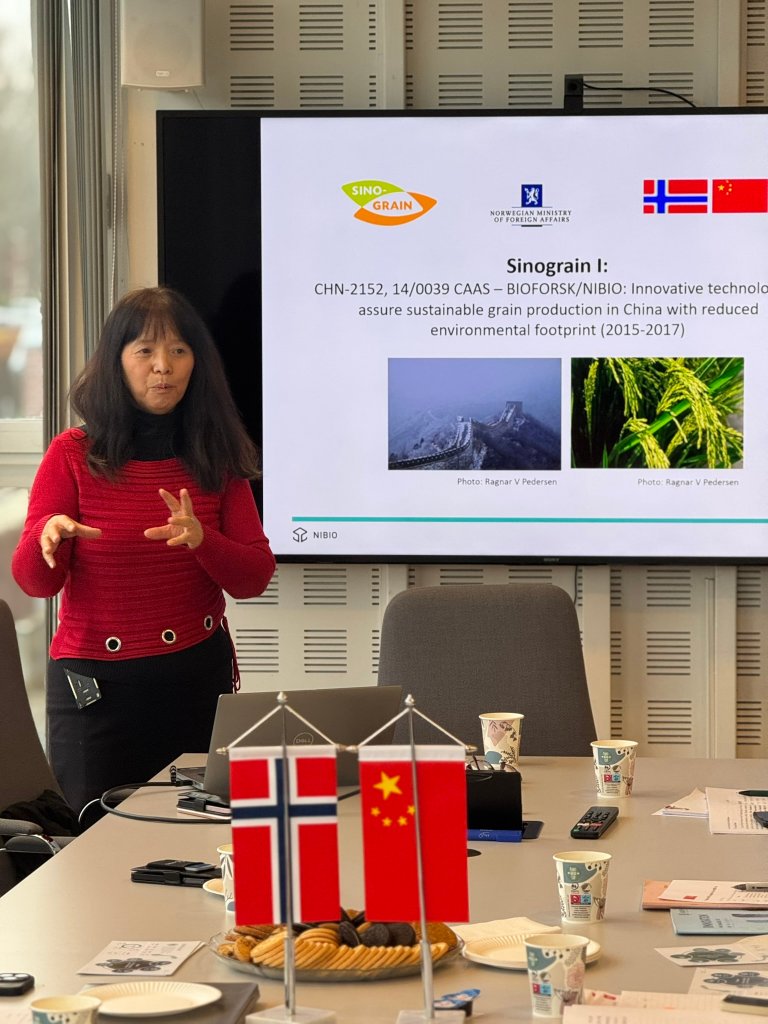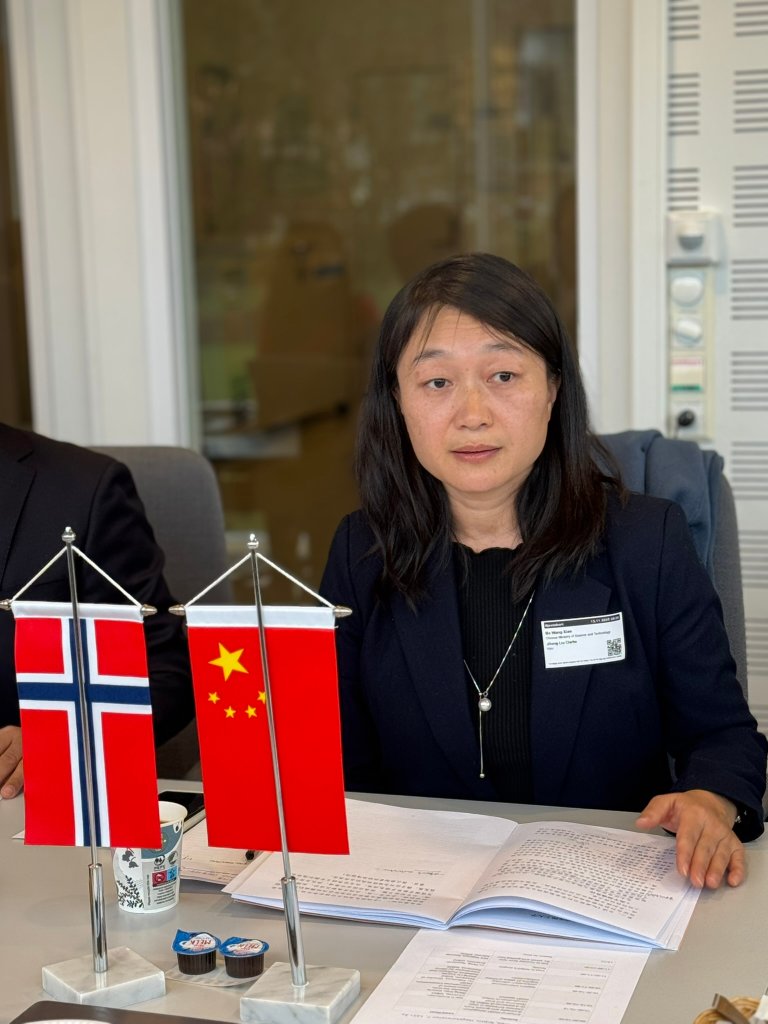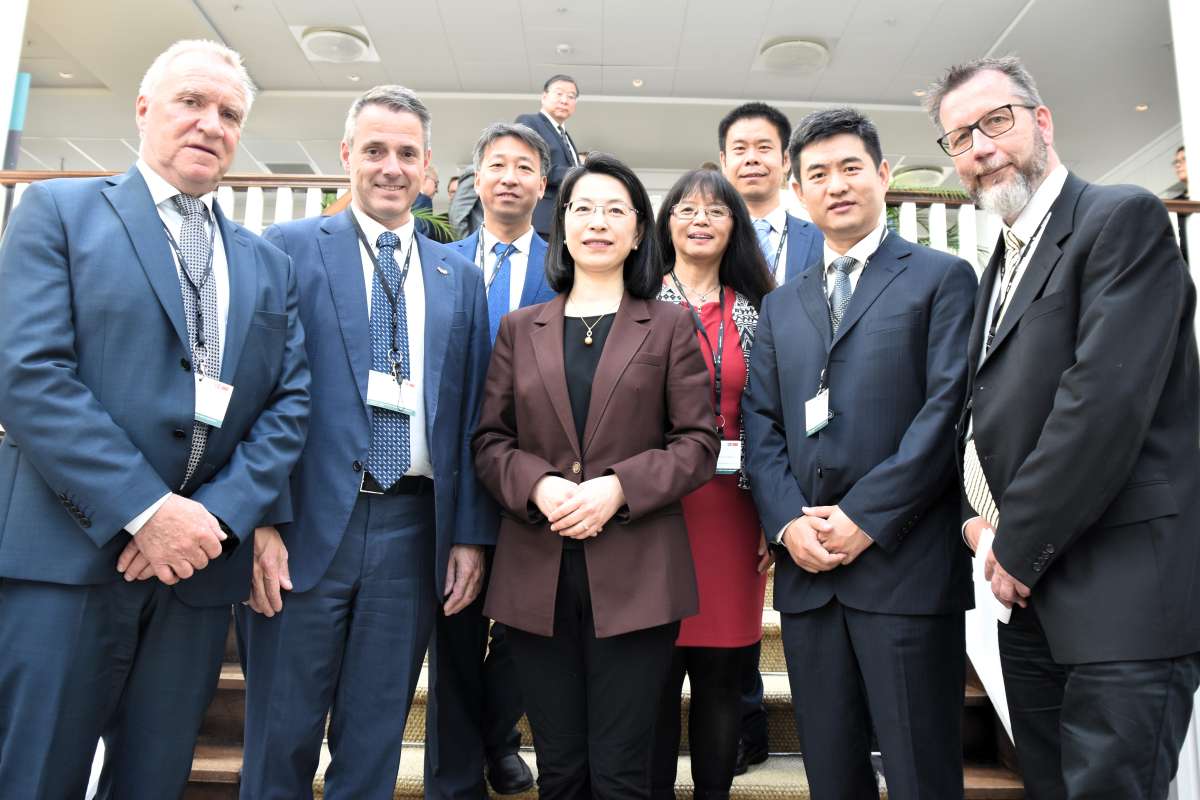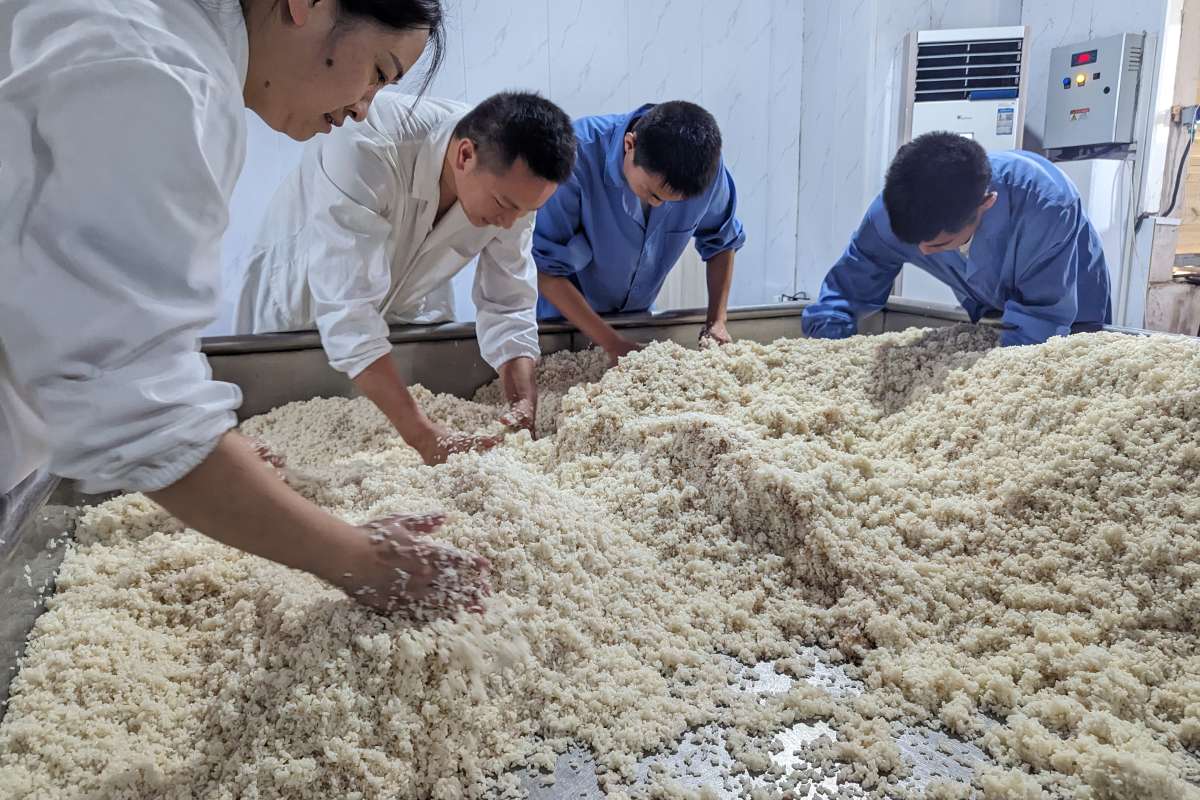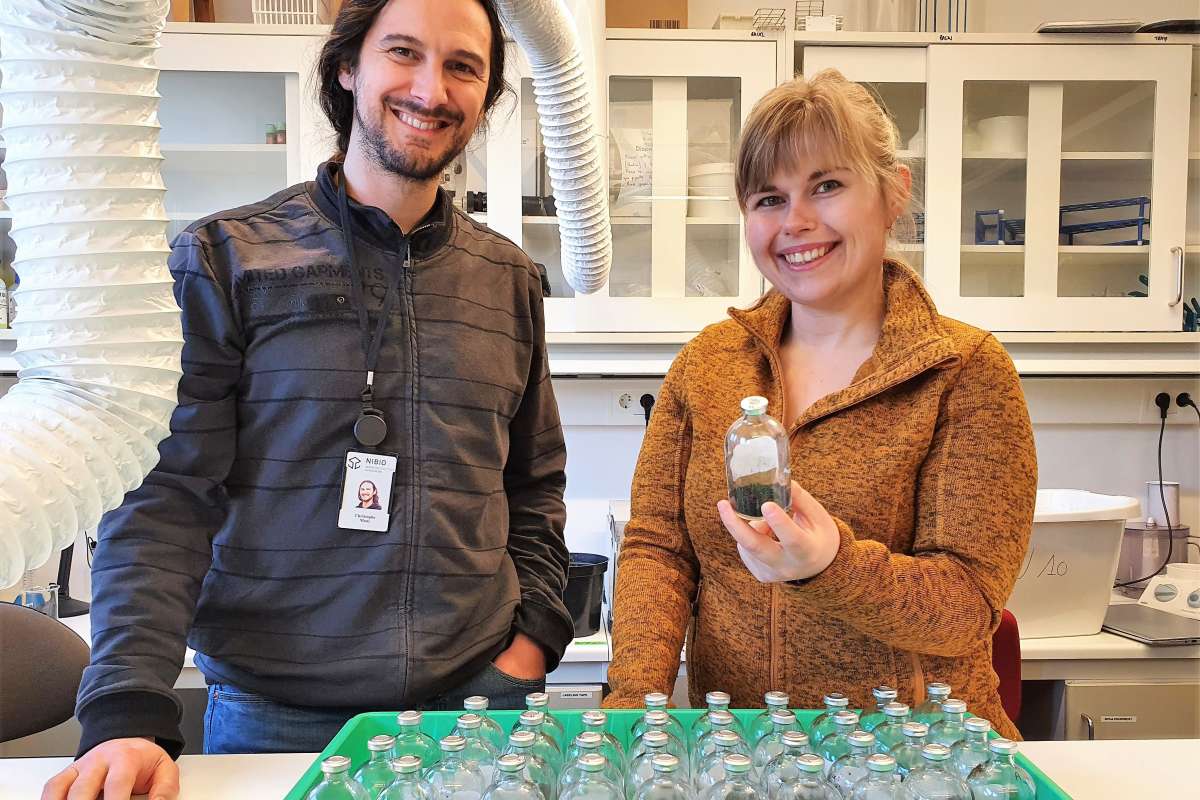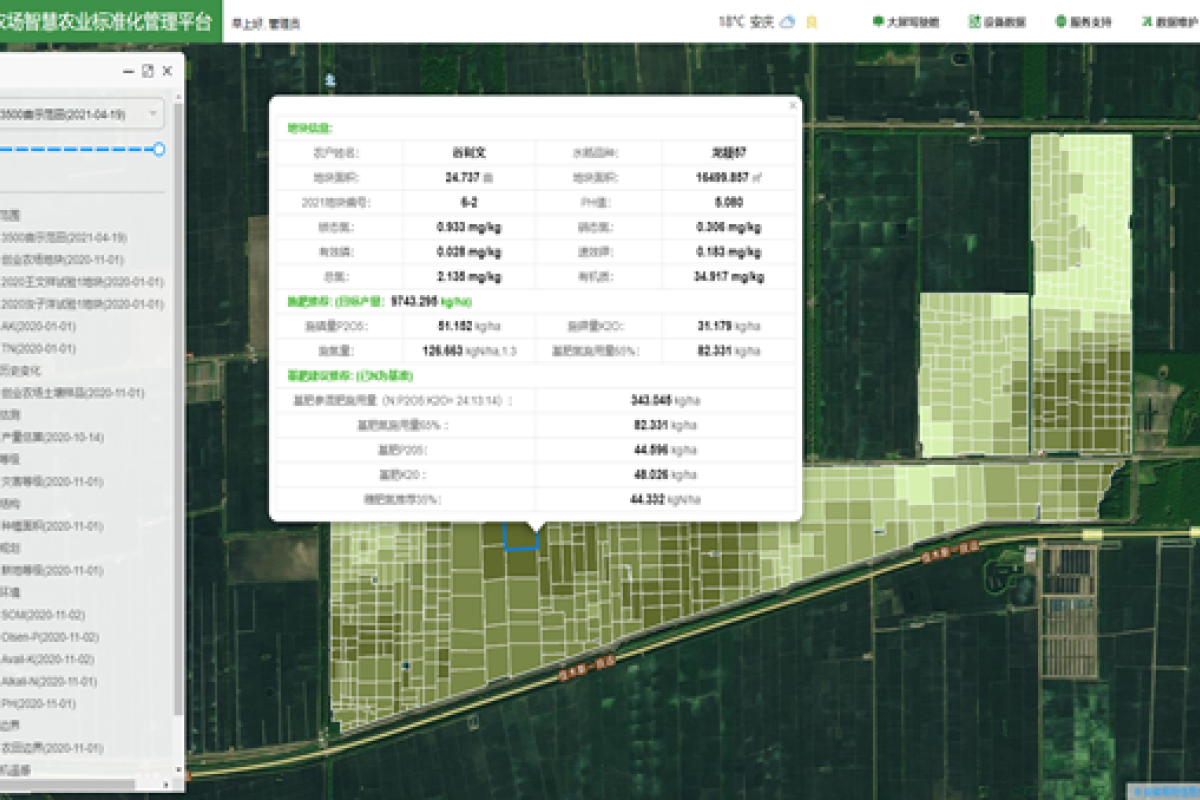Norway-China research partnership moves forward
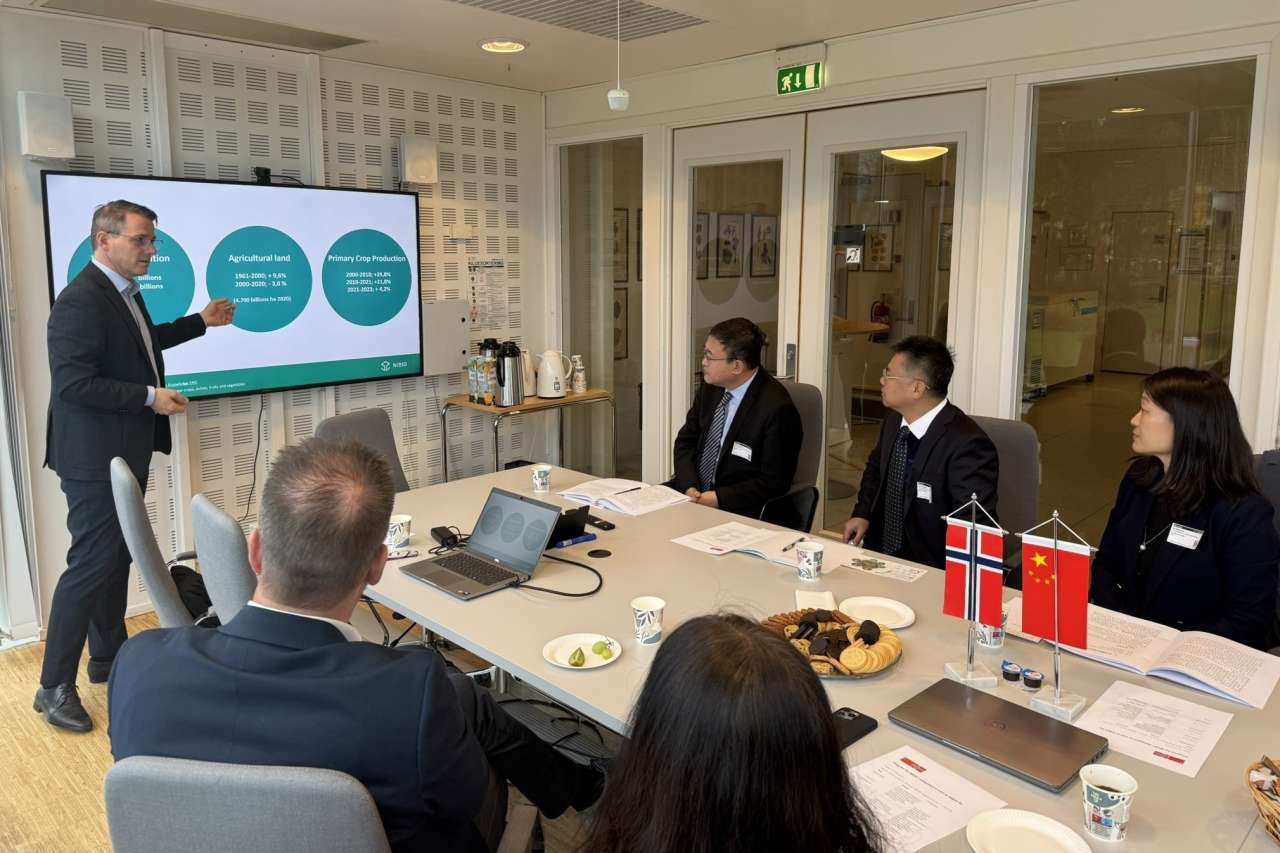
NIBIO’s Director General, Ivar Horneland Kristensen, gave a presentation on NIBIO’s work to the MOST delegation. Photo: Siri Elise Dybdal
A delegation from China’s Ministry of Science and Technology (MOST) visited NIBIO last week to learn about the next phase of collaboration with Chinese institutes. Norway and China address shared challenges such as sustainable agriculture, food security, climate change and biodiversity, and is strengthened by continued knowledge exchange.
For more than 20 years, NIBIO has conducted extensive research collaboration with Chinese research institutions in areas such as climate-smart agriculture, plant health, food safety, biodiversity, and antimicrobial resistance, as well as research on biochar, food security, and the circular bioeconomy.
According to Dr. Jihong Liu Clarke, Research Professor and Coordinator for China Relations at NIBIO, the research collaboration between NIBIO and China began mainly as a transfer of expertise from NIBIO (formerly Bioforsk) and Norway to China within the fields of plant health, potato diseases, and environmentally friendly food production.
“Today, NIBIO benefits from having established early partnerships with leading Chinese research institutes. These collaborations provide strong strategic partners at the forefront of their fields, ensuring that new and important knowledge now flows both ways”, Dr Clarke states.
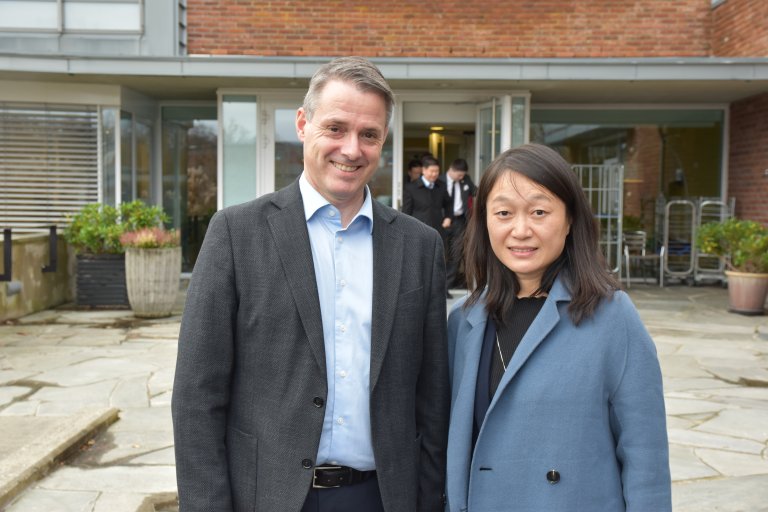
Visit from Chinese Ministry
Last week, a delegation from China’s Ministry of Science and Technology (MOST) visited NIBIO in Ås to learn about the ongoing collaboration NIBIO has with Chinese partners and discover new opportunities for the future. The delegation also toured NIBIO’s biogas facility and visited Kjølberg Farm in Ås.
NIBIO’s Director General, Ivar Horneland Kristensen, gave a presentation on NIBIO’s work to the MOST delegation. He emphasised NIBIO’s ambition to be a leading force in the green transition and highlighted the importance of skilled personnel, while also stressing the role of AI and new technologies in research.
“Service development and AI are transforming how we conduct research. Data, and how we utilise it, is key,” he underlined.
Kristensen noted that Norway and China share many common challenges, including food security, climate change, and the need to produce food sustainably.
“The effects of climate change are visible and tangible for both of us,” he pointed out.
The Director General stressed that these shared challenges make international collaboration essential, and praised the long-standing cooperation between NIBIO and Chinese research institutes:
“I am impressed by the development of our long-term collaboration with Chinese research institutes. Over more than 20 years, we have built a two-way exchange that enables us to tackle difficult problems together and implement better solutions for farmers and for climate action,” Kristensen said.
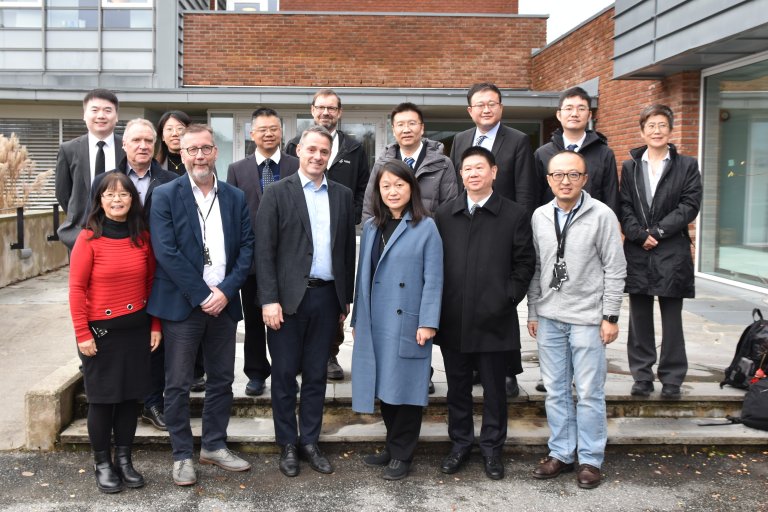
Science, technology, and innovation
Wang Xiao, Deputy Director General at the Department of International Cooperation at MOST, echoed Kristensen’s points and emphasised that shared global challenges are a key motivation for deepening the research partnership between China and Norway.
“Our common global challenges are one of the main reasons China engages in international cooperation. We share the same mission and ambition,” Wang said, highlighting that China views science, technology, and innovation as the primary drivers of national development.
She also expressed strong support for the ongoing collaboration between NIBIO and Chinese research institutes. “I am very pleased with the partnership that has been established with NIBIO. Looking ahead, I believe the green transition should remain one of our shared priorities,” Wang said, emphasising the importance of working together to address both environmental and agricultural challenges.
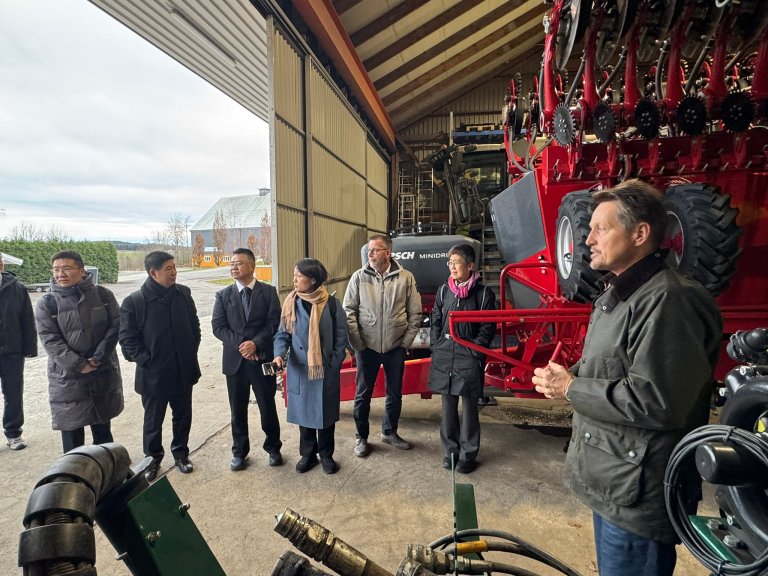
From biodiversity to health
NIBIO currently has several ongoing projects in partnership with Chinese research institutes.
Dr. Liu Clarke explains that the research spans a wide range of areas, including the conservation of biodiversity in China in the context of climate change, antimicrobial resistance in soil and its impact on animal and human health (One Health), as well as smart agricultural technologies and the applications of waste-derived biochar.
“These efforts contribute to food safety and security, the reduction of greenhouse gas emissions, and the development of a bio- and circular economy.”
“Now we have entered a new phase of technology. China has made significant progress, and we are learning more from each other. We gain a lot from our scientific collaboration,” the Research Professor says, highlighting the mutual benefits and growing potential of these partnerships.
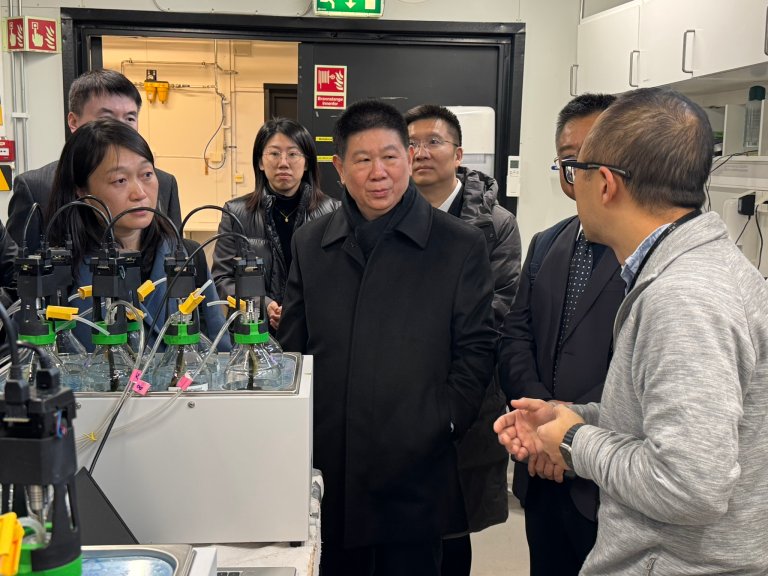
Food preparedness linked to security
NIBIO’s Director of Research, Per Stålnacke, emphasises the critical links between global food systems, security, and international cooperation:
“Global and national food production are deeply interconnected,” says Stålnacke.
“Food preparedness is part of both national and international security – and as we saw during the drought across three continents in 2024, several hundred million people faced food insecurity,” he highlights.
The Director of Research believes international cooperation is also needed to achieve the UN Sustainable Development Goals:
“To protect nature, the environment, and the climate, international cooperation is essential. Shared challenges require joint efforts,” he underscores.
“Finally, Norway is a small country, and NIBIO’s strategy is to bring home the best available international science and knowledge,” Stålnacke concludes.
Contacts

NIBIO’s Norway/EU–China Projects
NIBIO has been involved in numerous Norway/EU–China research projects, including Sinograin III, SiNorAMR, EU-China Horizon 2020 SiEuGreen, LowImpact, TorVir Project, Feed2Food, Conservation of Biodiversity in Light of Climate Change in China, and Econutri.
These projects have led to multiple scientific and popular science publications. There has also been a long-standing, mutually valuable exchange of researchers between Norway and China.
